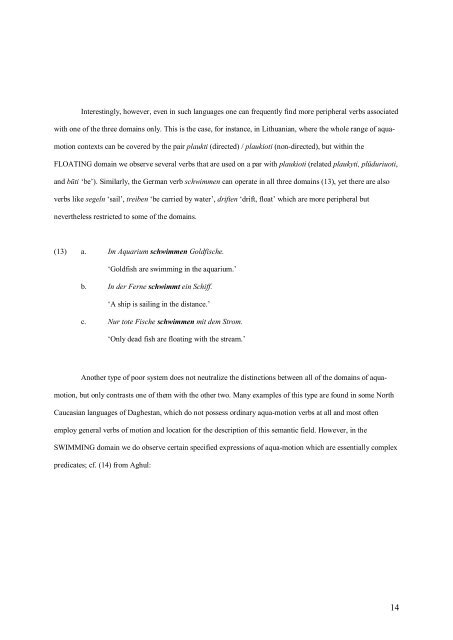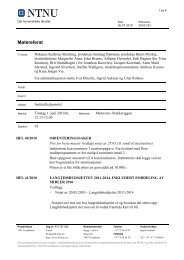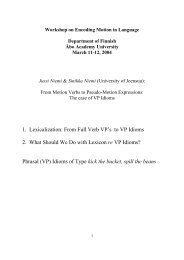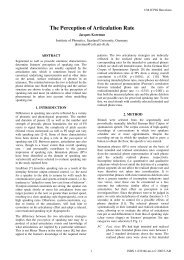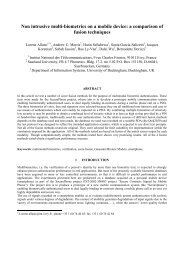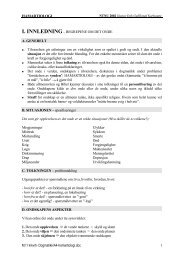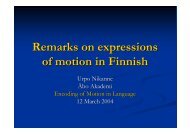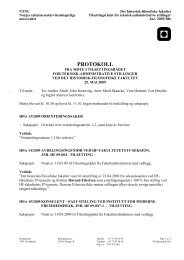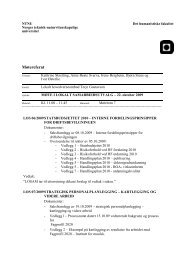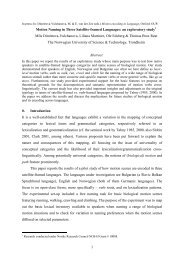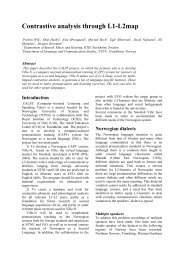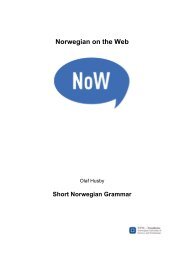Domains of aqua-motion: a case study in lexical typology Yury A ...
Domains of aqua-motion: a case study in lexical typology Yury A ...
Domains of aqua-motion: a case study in lexical typology Yury A ...
You also want an ePaper? Increase the reach of your titles
YUMPU automatically turns print PDFs into web optimized ePapers that Google loves.
Interest<strong>in</strong>gly, however, even <strong>in</strong> such languages one can frequently f<strong>in</strong>d more peripheral verbs associated<br />
with one <strong>of</strong> the three doma<strong>in</strong>s only. This is the <strong>case</strong>, for <strong>in</strong>stance, <strong>in</strong> Lithuanian, where the whole range <strong>of</strong> <strong>aqua</strong><strong>motion</strong><br />
contexts can be covered by the pair plaukti (directed) / plaukioti (non-directed), but with<strong>in</strong> the<br />
FLOATING doma<strong>in</strong> we observe several verbs that are used on a par with plaukioti (related plaukyti, plūduriuoti,<br />
and būti ‘be’). Similarly, the German verb schwimmen can operate <strong>in</strong> all three doma<strong>in</strong>s (13), yet there are also<br />
verbs like segeln ‘sail’, treiben ‘be carried by water’, driften ‘drift, float’ which are more peripheral but<br />
nevertheless restricted to some <strong>of</strong> the doma<strong>in</strong>s.<br />
(13) a. Im Aquarium schwimmen Goldfische.<br />
‘Goldfish are swimm<strong>in</strong>g <strong>in</strong> the <strong>aqua</strong>rium.’<br />
b. In der Ferne schwimmt e<strong>in</strong> Schiff.<br />
‘A ship is sail<strong>in</strong>g <strong>in</strong> the distance.’<br />
c. Nur tote Fische schwimmen mit dem Strom.<br />
‘Only dead fish are float<strong>in</strong>g with the stream.’<br />
Another type <strong>of</strong> poor system does not neutralize the dist<strong>in</strong>ctions between all <strong>of</strong> the doma<strong>in</strong>s <strong>of</strong> <strong>aqua</strong><strong>motion</strong>,<br />
but only contrasts one <strong>of</strong> them with the other two. Many examples <strong>of</strong> this type are found <strong>in</strong> some North<br />
Caucasian languages <strong>of</strong> Daghestan, which do not possess ord<strong>in</strong>ary <strong>aqua</strong>-<strong>motion</strong> verbs at all and most <strong>of</strong>ten<br />
employ general verbs <strong>of</strong> <strong>motion</strong> and location for the description <strong>of</strong> this semantic field. However, <strong>in</strong> the<br />
SWIMMING doma<strong>in</strong> we do observe certa<strong>in</strong> specified expressions <strong>of</strong> <strong>aqua</strong>-<strong>motion</strong> which are essentially complex<br />
predicates; cf. (14) from Aghul:<br />
14


